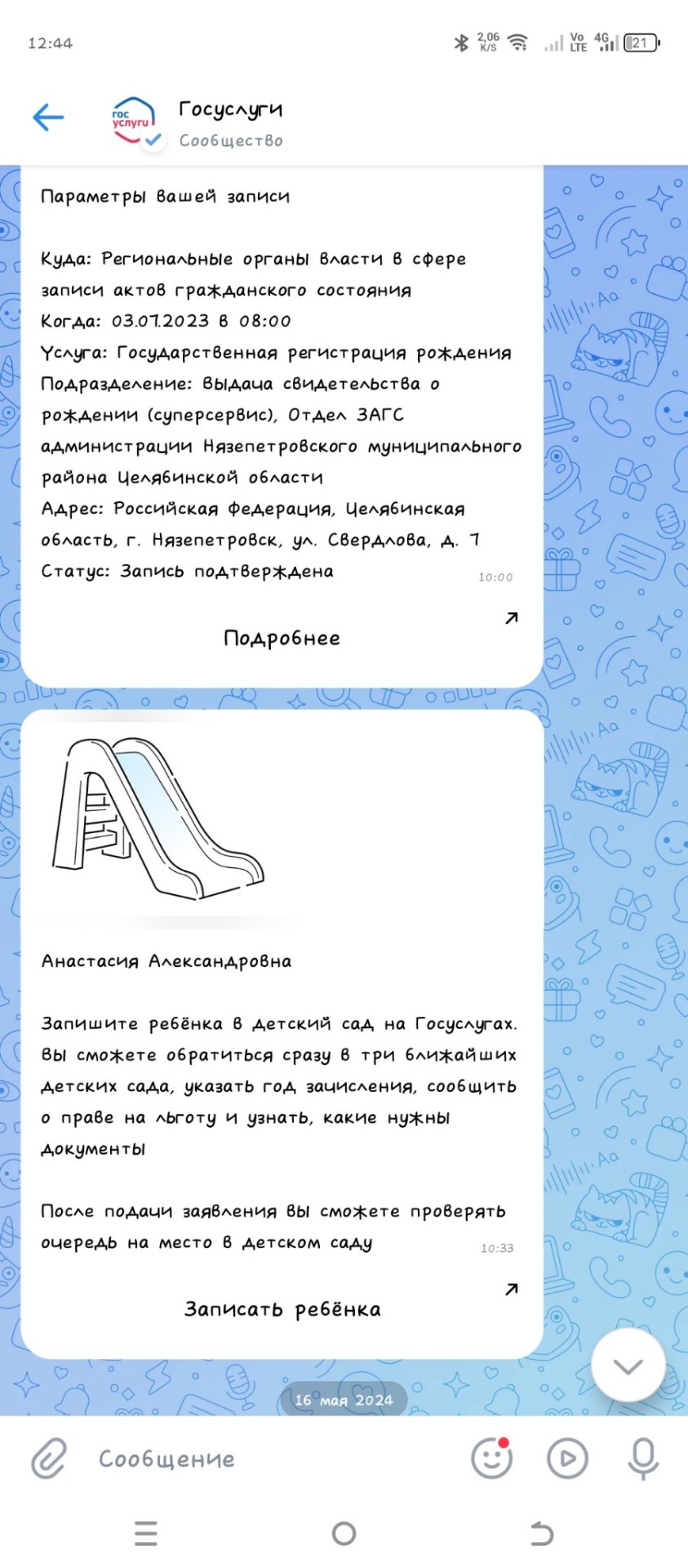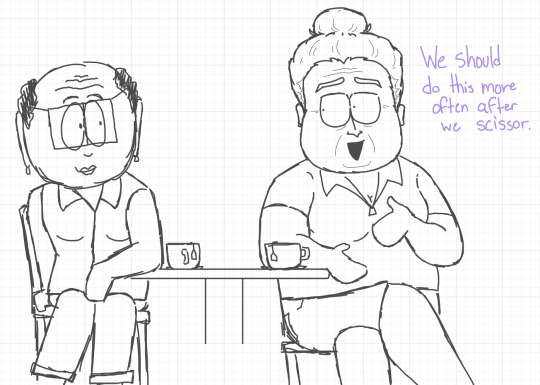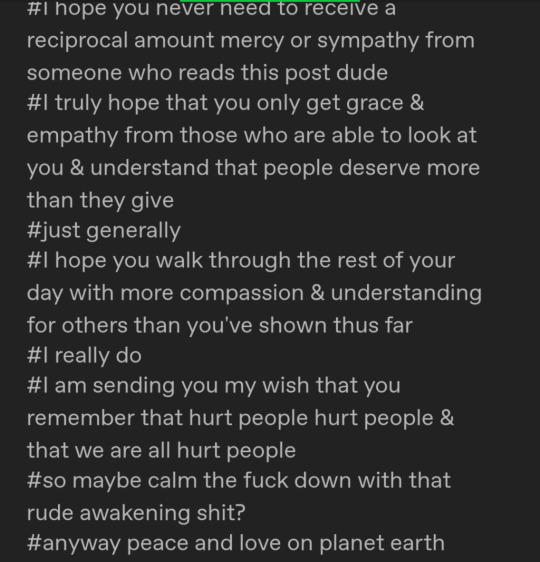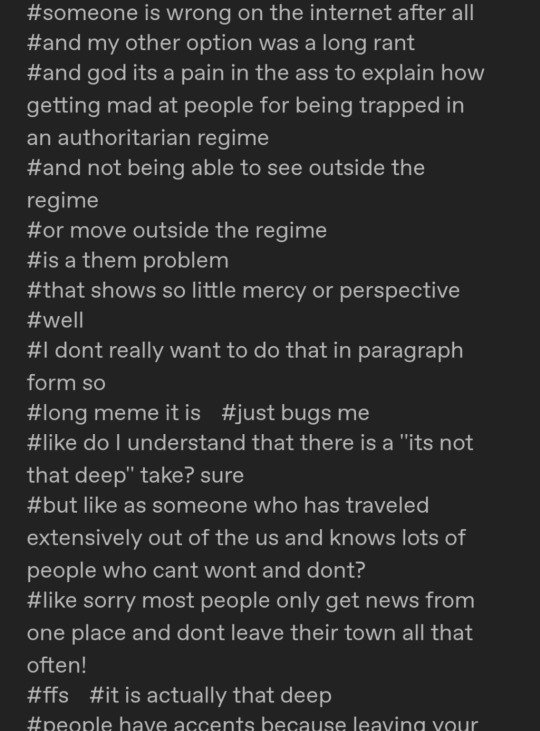#RuNet
Explore tagged Tumblr posts
Text
Ру
Не понимаю тех, кто ноет, что в России ужасные технологии... Вы серьёзно? Интересно, в какой ещё соцсети вам придут квитанции по документам, напоминание о записи на приём к врачу или их отмена? Через эти же сообщения сразу можно перейти на сайт и всё оплатить никуда не выходя из дома и это только малейшая часть того, что можно сделать в рунете. Я серьёзно не понимаю, я бы не смогла уже жить без госуслуг и вк, ибо мне лень тащить свою задницу в мфц или сфр и сидеть в очереди с кучей бумажек.




Eng
I don't understand those who complain that Russia has terrible technology... Are you serious? I wonder in which other social network you will receive receipts for documents, a reminder to make an appointment with a doctor, or their cancellation? Through the same messages, you can immediately go to the website and pay for everything without leaving your home, and this is only the smallest part of what can be done on the Runet. I seriously don't understand, I wouldn't be able to live without public services and VK anymore, because I'm too lazy to drag my ass to the MFC or SFR and sit in line with a bunch of papers.




#slastena shipper#Россия#Жизнь в России#Госуслуги#Вк#Russia#Life in Russia#Public services#vk#Рунет#Runet
2 notes
·
View notes
Text
Runet stuff!!







Also expect some drawings of Marcus and more art in general of the Garrick DemonPriest AU soon

10 notes
·
View notes
Text

Resilente Infrastrukturen
Wir wollen kein Internet mit Grenzen!
Trotz vorheriger Ankündigung blieb die Abschaltung des weltweiten Zugriffs auf das Internet in 3 Regionen Russlands in unseren Medien weitgehend unkommentiert. Die russische Zensurbehörde Roskomnadsor hatte angekündigt, dass mit dem Test die Funktionsfähigkeit eines rein inländischen Netzwerkes erprobt werden sollte.
So hatten am 6. und 7. Dezember Nutzer in den betroffenen Regionen keinen Zugriff auf ausländische Webseiten und die Messengerdienste wie WhatsApp oder Telegram waren nicht erreichbar. Auch VPN, also Virtual Private Networks gingen nicht durch die Firewall. Ob ein Zugang über das Tor Netzwerk möglich war, ist bisher nicht bekannt. Dies wäre möglich, wenn es in den gesperrten Regionen Tor Knoten geben würde.
Nach Medienberichten waren die Test-Regionen Dagestan, Tschetschenien und Inguschetien. Da diese Regionen einen hohen Anteil an muslimischen Einwohner besitzen, kommt dem "technischen Test" auch eine politische Bedeutung zu. Der Test deutet auf jeden Fall darauf hin, dass Russland damit chinesischen Ideen einer Großen Firewall folgt.
Der Begriff "Resilenz" ist auch bei uns seit einigen Jahren im Gebrauch mit dem Blick auf ausländische Einmischung und Einflussnahme. So zitiert auch Heise.de die russische Nachrichtenagentur Interfax, dass die Abkoppelung zum sogenannten RuNet dazu diene, "die Verfügbarkeit wichtiger ausländischer und russischer Dienste im Falle eines absichtlichen externen Einflusses sicherzustellen". Man möchte also testen, dass das interne russische Netz funktionsfähig bleibt, wenn es Cyberangriffe von außen gäbe.
Als Kämpfer für Informationsfreiheit und Netzneutralität können wir vor solchen Spielchen nur warnen. Das weltweite Internet als Möglichkeit des Austausches zwischen allen Menschen muss erhalten bleiben. Eingriffe und Zensur müssen unterbleiben. Genauso ist die Vorherrschaft der großen Internetkonzerne (Big5) zu verurteilen, die schon allein durch ihre Marktmacht Möglichkeiten der Steuerung und Manipulation der Menschen besitzen.
Mehr dazu bei https://www.heise.de/news/Test-Russland-koppelt-drei-Regionen-vom-globalen-Internet-ab-10193700.html
Kategorie[21]: Unsere Themen in der Presse Short-Link dieser Seite: a-fsa.de/d/3Ep Link zu dieser Seite: https://www.aktion-freiheitstattangst.org/de/articles/8998-20241215-resilente-infrastrukturen.html
#Russland#Test#RuNet#ResilenteInfrastruktur#Messengerdienste#WhatsApp#Telegram#Abschottung#Zensur#Transparenz#Informationsfreiheit#Meinungsmonopol#Meinungsfreiheit#VPN#Tor#Dagestan#Tschetschenien#Inguschetien#Manipulation
1 note
·
View note
Text
.
#I dont wish for this post to show in any general tags in any way shape or form. consider it a vent#d*scord has been banned as a lot of other different things and I can't fix it especially with my Computer Curse (tm)#which is frustrating to say the least. it's not like I've been there often but I Did contacted a lot of ppl through it#there is always people who has it worse and I feel like even thinking about it makes me a horrible person but#as much as I hate posting about stuff like that I genuinely believe that my country slowly tries to become second n*rth k*rea.#and it heavily affects me even if I live in the countryside.#first you ban gay people from existense so I can't even hold hands with same-sex friends in public and if my social media is leaked I can b#send to. like. an actual pr*son. which is very real and not a joke at all.#then you ban every online payment services so I'm forced to work double time to be able to feed myself since commissions are barely availab#anymore. and THEN you ban ways for people to connect. don't get me started on how much is fucks up my calling scheldue w friends & I miss#servers I used to visit to get my mind off of all of this bullshit#this is just upsetting. not gonna lie#with a cherry on top that the winter is close I'm freezing dead in my living space & the roof is leaking & my phone is dying &#I thought the vicious thunder the other day was another midnight b*mbing LOL. at this point I have no idea how I'm still sane#not gonna say Ive got it bad because I'm slowly reaching my goals and it's gonna get better eventually. it's just one of those days#where all of the things come at once overwhelmingly and I'm paralyzed to start anything on my to-do list#I think I need to go outside and stop overthinking it as I usually do.#I'm absolutely gonna miss LN3 release and will slowly fall out of fandom (but not stop being interested in it. at this point it's impossibl#sigh#tumblr is the only way for me to contact outside world and even tho the real world is not so bad I'm still missing a lot and falling out of#my interest in fandom & art in general. if they're gonna ban tumblr I think I'll fall out completely and vanish#bcause runet algorithms are not fandom- and/or art-friendly & I'm not really popular in my space to gather any meaningful interactions#I'm gonna boil in my already-formed company and that's as much as I can get. pretty much a foreseeable death of me as an artist.#how it's gonna affect me is unpredictable and I'm not gonna grief for inevitable future#but I'm sure I'm gonna be very sad. as if there's not enough weight already on my shoulders.#let's pray they won't do that. but I'm ready for the worst already since they're trying to make people's lifes as much miserable as they ca#overthinking wins for today fellas. it seems.#memento mori by will wood starts playing#vent#its bad to say but the w*r doesnt affect me much since Ive been living in a horrible conditions this whole time. it truly can't be any wors
13 notes
·
View notes
Text
Just found out Runet Censorship Bypass prevents Fandom Wikis from loading. I almost forgot I had it. Just added the one currently interesting me to exceptions and it got fixed.
2 notes
·
View notes
Text

God, I'm having post 2014 runet flashbacks. Am i the only one who's having post-2014 runet flashbacks? If you weren't on runet in 2014, you're a blessed one and I kinda am envious of you. But you might have been on runet in 2022 and I was told it was basically the same thing.
Like, is it a southern-like way to say thank you? You know, when they say "bless your heart"?
But it's American way to say "why are you attacking me by pointing out how ignorant and priveleged i am? My country was given to us by aliens, average russians - ahem, americans - had nothing to do with how it is whatsoever, we are ignorant because god and capitalism made us this way" and like. I know for a fact not all Americans are like that. But some of them are and it's - you know, just proves my theory why do theyall love tolstoyevsky so much and love to study russian language in god's year 2023
Like why are you pretending it's a question of empathy, your current fascist president won not the least thanks to voters approving his international politics views. Like y'all were mad for Europe for being poorer than you and not spending the same amount of money while you pressured them into not developing the same capabilities as you have, including the nuclear weapons programs. You paid money but it's Europeans who paid with blood for your wars because article 5 was ever invoked for US only. And it's not even NATO members only who paid for you. But that's beside the point - you were aware of international politics enough to hate Europe but not enough to realise that russia isn't your friend? That threatening your allies and neighbours is bad actually? And it's all because car lobby doesn't allow you to have trains or something? Buddy! Buddy, 'm sorry if you find me trying to wake you rude, but I have a feeling I won't be able to wake you up at all BECAUSE YOU CAN'T WAKE SOMEONE WHO PRETENDS TO BE ASLEEP
Upd:

Yeah it's runet 2014 and or 2022
Like I'm not even mad at a non-trumpist, non-tankist Americans unless they open their mouth to say this.
35 notes
·
View notes
Text

For once, after the war with one of the toxic artists on the Runet, I found the strength to take up my projects again, and despite studying, term papers, and multiple lectures, I still decided it would be great if I were distracted by one of my favorite fandoms, which is familiar in the Russian segment. except for the Star Captain videos. That is, I rarely came across people who were really known for a fandom in Russia, but as it turned out, there are almost no such people among foreign fans. And this applies even to those for whom Thomas is a national character.
And then a spark clicked in my processor: WAS THERE AT LEAST SOME OFFICIALLY ESTABLISHED THOMAS ENT? How did it all start and how did it end? But okay, film adaptations are one thing, but W. Audrey's books... also don't set any clear canons, and sometimes contradict themselves.
And, probably, a common question is "why are locomotives alive?". And before the release of Thomas and the Magic Rails, there were no clear answers. (who am I lying to, they are not there now) Is the lady a steam train that ejects magic dust from its cylinders and animates all the other machinery? No! Then she would have been the oldest steam locomotive in the world, and the trains before her would have been lifeless! But no, Stephen says that they were always alive (he doesn't say, but it was shown in flashbacks). Then what is her role? Audrey said that steam locomotives lose their face outside of Sodor, but then he himself showed in the book that they are alive everywhere. And as for the City of Truro, which has never regained its face? And Salty, who didn't get it right away? And how do you understand why some cars are alive and some are not?
#artwork#illustration#fanart#sketch#fandom#ttte lady#ttte#tomas the tank engen#thomas and friends#ttte thomas
36 notes
·
View notes
Text
One thing that the confused response to Russians at War makes clear is that eight years after the revelation that Moscow attempted to influence a U.S. presidential election, most Westerners still don’t really know how Russian propaganda campaigns work. Americans have become familiar with AI botnets, salaried trolls tweeting in broken English about Texas secession, deranged Russian TV hosts calling for a nuclear strike on New York, and alt-right has-beens. But what to make of a French and Canadian documentary, tucked between Pharrell’s Lego-animated film and a Q&A with Zoe Saldaña, that seems cozy with the Russian military and blurs the line between entertainment and politics?
...
Since the start of the full-scale invasion of Ukraine, Russian propaganda has churned out absurd and repulsive lies, such as that Ukraine has biolabs where NATO scientists are working on a virus that targets Slavic DNA, and that Zelensky, who is Jewish, presides over a neo-Nazi regime. Yet, in a way, it has become honest with itself—at least for the domestic audience. There’s no longer a need for platforms like Russia.ru or The Journal, because the message is clear: This is who we are, and you’re either with us or against us. And yet, the entertainment aspect didn’t disappear.
...
One reason Russian propaganda is running circles around the West is that the internet was one of the few domains where the Russian state arrived late, forcing it to co-opt those who understood it. RuNet, the Russian segment of the World Wide Web, was created—and run—by people like Rykov: artsy 20-somethings, filled with cynicism, post-Soviet disillusionment, and a cyberpunk mentality. The collapse of the Soviet Union taught them that truth was whatever they wanted it to be, and that survival was the ultimate goal. The advertising executives, philosophy students, and creatives who once made video art, lewd calendars, and scandalous zines are the same minds who in 2016 said, “Let’s make memes about Hillary Clinton,” and in 2024 suggested using AI to flood X with believable comments. In many ways, this confrontation mirrors what’s happening in Ukraine: This time, however, the West is the massive, unwieldy force being outsmarted by a smaller, more tech-savvy adversary.
The good news is that the Kremlin is a graveyard of talent. In time, every gifted person I knew who went behind its brick walls was devoured by deceit, paranoia, and fear of losing one’s place in the sun. Konstantin Rykov was exceptional at his job, so much so that the Kremlin offered him a seat in the Russian Parliament when he was just 28. He accepted the offer. But being a member of the Duma Committee on Science and High Technologies and the Committee for Support in the Field of Electronic Media wasn’t the same as being the editor of fuck.ru. Despite being involved in some foreign influence operations, Rykov, now 45, hasn’t produced any significant work for Russian audiences since he joined Parliament.
Asked by an audience member in Toronto whether Russia was responsible for the war in Ukraine, Trofimova replied, “I think there are a lot of other factors involved. Yeah, like they are definitely sending troops in to solve whatever grievances there are.” Even if it wasn’t financed by Moscow, Russians at War reminds me of a Rykov production: slick, scandalous, and with a ton of free press. The message the film conveys is that war, not the country that started it, is bad in this scenario. Trofimova seems to portray Russia’s invasion of Ukraine, and the astonishing scale of the atrocities it has committed there, as something impersonal and inexorable, like a tsunami: We can only accept it and sympathize with the victims, including Russian soldiers.
15 notes
·
View notes
Note
how’d you get interested in SCP? What introduced you to it :7
ooooh that's a story I've told my friends many times.....
I found out about SCP in 2013 or in 2014, I don't remember exactly when. but at that time I was about 10-11 years old. I was fixated on my little pony so I watched absolutely everything related to MLP on youtube back then. one day I stumbled upon a gameplay video of SCP containment breach with modification that added MLP characters. I really liked it so I decided to find out what that SCP thing was all about. since then I was a fan of popular SCPs like 173, 049 and 106 until 2015 when I started reading the main site (in russian). at the time SCP wasn't that popular on the runet, especially among kids, and there were mostly adults in the fandom, so I was shy about saying publicly that I liked SCP
so yeah kinda like that :b
11 notes
·
View notes
Text
What to do about Dybowski...I had heard something about this on runet some time ago but didn't really know the details, so I didn't think very hard about it at the time. (Well, that's awfully lazy of me.)
Firstly, I believe the accusations, too many people are saying the same thing. Even if the details could be off, which is the only thing I could think of saying in his defense, the big picture is still there, so that's out of the way.
Second of all, personally, I've got a high tolerance for bad behavior from creators...if he wants to beat his father-in-law half to death or show up drunk to his job, I don't think there's anything I can do to contribute to his actions positively or negatively. And I think it's not bad if a sinful person can make art to contribute something to society even if everything else he does is worthless.
However, the accusations about him abusing his position to groom fifteen-year-olds are unfortunately directly connected to the things that I personally do as a fan - paying him money and attention lets him acquire social capital which he can use to manipulate people. It was due to our admiration as IPL fans that he got hired to teach, for instance. So it's dangerous to potential child victims to continue to support his games and it's one of the rare situations where, like with Rowling, fan support makes a difference in whether or not bad things are happening. (Aside from child victims, he should be leaving university students alone too - I tried dating a young university student once in my early thirties since I really liked them, and because at 18/19 I had had relationships with older men that were tolerable and it seemed pretty normal to me - but that was a trainwreck, first hand I can tell you that it shouldn't be done. It's also really bad if he's trying to sleep with young people who are interested in entering his field, he can use connections in the industry or the power he has as a professor to punish them if they don't do as they're told. If he wants to sleep with someone they should be a florist or sell phones at the mall, or at least be a game dev who has already secured her career.)
I think personally I'd be okay playing Pathologic 3 if he was stripped of his position at the university, that would make it much harder for him to do this sort of thing and it would be even more of a public scandal so people would know to watch out for him. I'm unsure of what the university is doing about this, just that they made an announcement saying that they're not suing a student for libel along with him as was rumored some time ago. So I probably won't be able to play the third game or Quarantine responsibly or make any fan content unless this gets resolved differently. Honestly, ideally he'd admit to his behaviors and quit by himself, but judging by his response to the allegations so far that's about as likely to happen as someone winning the lottery without buying a ticket.
My apologies to Bachelor that I can't help him this time...
7 notes
·
View notes
Text
Guys, if I suddenly disappear, then know that this is most likely forever XD
Runet is disconnected from the world Internet XD
Hmm, Roskomnadzor is already completely mad...
14 notes
·
View notes
Text
2 notes
·
View notes
Text
okay no but actually the more i think about it, the fact that Duke Gregario's favorite flower is the humble malllow makes me feral cause it's like
it's like
it's this tiny little five-petal flower, right? comes in these soft pretty shades of pink and purple (the name of the color mauve is taken from the french word for mallow), so it's often grown purely ornamentally, though it has medicinal and culinary uses as well. and it tends to grow fairly low to the ground, but in the right circumstances, it can actually grow relatively tall
and that's . . . that's also a description of Ariel
he's graceful and charming, so a pretty face is all that some people see, even though he was a soldier for a few years and he's crafty and clever in a way that Duke Gregario immediately realized he could use when the two of them first met. and although he's of low birth—a mere hidalgo, without title or land or hope of inheriting either—Duke Gregario saw the potential for greatness in him anyway and elevated his status and gave him the environment where he could thrive and grow
aaaaaaaaaaa i'm just so wild about these two and their relationship. it's so tragic that they only exist together in my head
anyway reblog this/comment with the little details about your OC romances and close friendships that make you go feral
#ariel sentera alvedes#my ocs#blorbo posting#ruins of runet#literally though they don't even exist together in the campaign#because Duke Gregario died in the prologue#when we first meet Ariel he is in *mourning*#but i've written little backstory scenes with them and ugh#there's so many very good reasons that they never should have gotten together#(a significant age gap and employer/employee power imbalance and the duke being married with grandchildren FOR STARTERS)#and yet the affair was frankly inevitable#someday perhaps i will finish the collection of scenes following the development of their relationship#and post it here#until then y'all will just have to deal with occasional crazed rambling lol#i didn't even do the flower thing on purpose#i just kinda picked a flower with a pretty spanish name native to the region#it wasn't until i actually saw some in person that it hit me how *perfect* a choice it really was#i love writing moments like that
1 note
·
View note
Text
Holidays 4.7
Holidays
Billie Holiday Day
Deceased Submariners Remembrance Day (Russia)
Empowered Women Entrepreneurs Day
Festival of Commodity Fetishism
407 Day
Freedom of Speech Day (Taiwan)
Genocide Memorial Day (Rwanda)
Global Stroke Survivors Day
Green Shirt Day (Canada)
Holocaust Remembrance Day
Homage to the Belgian Soldiers Deceased During Peace-Keeping Missions (Belgium)
International Day of Reflection on the 1994 Rwanda Genocide (UN)
International Snailpaper Day
International Tiny Day
Internet’s Symbolic Birthday
Jet Pack Day
Journalist’s Day (Brazil)
Karume Day (Tanzania/Zimbabwe)
Let Someone Else Clean Day
Metric System Day
Motherhood and Beauty Day (Armenia)
National Childhelp Day of Hope
National Girl, Me Too Day
National Health Day (Kiribati)
National Making the First Move Day
National No Housework Day
National Pet Health Insurance Day
National Schwa Day
National Slap Ass Day
No Housework Day
People’s April Revolution Day (Kyrgyzstan)
Press Day (Brazil)
Runet Day
Public Television Day
Seattle Rock Day
South Pacific Day
Tutsi Genocide Memorial Day (Rwanda)
Veteran’s Day (Belgium)
William Wordsworth Day
Women’s Day (Mozambique)
World CBT Day
World Health Day (UN)
World Health Organization Day (UN)
World Marbles Day
Food & Drink Celebrations
Beer is Back Day (a.k.a. Legal Beer Day)
Brew Year's Day
Coffee Cake Day
National Beer Day
New Beer's Day
Session Beer Day
Nature Celebrations
Adiantum Pedatum (Interesting; Korean Birth Flowers)
Beaver Day
Hemlock Day (French Republic)
International Beaver Day
International Bird Migration Day (Costa Rica)
Wood Anemone Day (Anemone Nemerosa)
Independence, Flag & Related Days
Day of the People’s April Revolution (Kyrgyzstan)
Flag Day (Slovenia)
Mississippi Territory (Created by Congress; 1862)
Pasargada (Declared; 2001) [unrecognized]
Republika Srpska (Proclaimed; 1992)
Rhodesia (Declared; 2021) [unrecognized]
1st Monday in April
Makeover Monday [1st Monday of Each Month]
Meatloaf Monday [1st Monday of Each Month]
Meditation Monday [Every Monday]
Monday Musings [Every Monday]
Motivation Monday [Every Monday]
National Fun Day [1st Monday]
National IEP Writing Day [1st Monday]
Right to Read Day [Monday of Library Week]
Sweet Potato Day [1st Monday]
Tater Day (Kentucky) [1st Monday]
Weekly Holidays beginning April 7 (1st Full Week of April)
America Saves Week (thru 4.11)
National Bake Week (thru 4.13) [From 1st Monday]_
Take Your Poet to School Week (thru 4.11) [5 Days from Monday of 1st Full Week]
Festivals On or Beginning April 7, 2025
Alaska Folk Festival (Juneau, Alaska) [thru 4.13]
C-CAP Benefit (New York, New York)
Seatrade Cruise Global (Miami Beach, Florida) [thru 4.10]
TED Conference (Vancouver, British Columbia, Canada) [thru 4.11]
World Ski & Snowboard Festival (Whistler, Canada) [thru 4.13]
Feast Days
Aequinoctium Vernum IX (Pagan)
Aibert of Crespin (Christian; Saint)
Alexander Rawlins (Christian; Saint)
Aphraates (Christian; Saint)
Aybert (Christian; Saint)
Blajini (a.k.a. Kindly Ones; Rumania; Everyday Wicca)
Brynach (Christian; Saint)
Celsus (a.k.a. Ceallach; Christian; Saint)
Columbus Day (Church of the SubGenius; Saint)
Diophantus (Positivist; Saint)
Edward Oldcorne and Ralph Ashley (Christian; Saint)
Find Your Inner Wombat Day (Pastafarian)
Finian Cam of Ireland (Christian; Saint)
Galahad (Muppetism)
George the Younger of Mitylene (Christian; Saint)
Goddess Karna's Day (Asatru/Slavic Pagan)
Goran (Christian; Saint)
Hegesippus (Christian; Saint)
Henry Walpole (Christian; Saint)
Hermann Joseph (Christian; Saint)
Jean-Baptiste de La Salle (a.k.a. John Baptist de la Salle; Christian; Saint)
Notker the Stammerer (Christian; Blessed)
Pandia (Festival of Zeus; Ancient Greece)
Patriarch Tikhon of Moscow (Eastern Orthodox Church, Episcopal Church (USA))
Spring Lessons Day (Starza Pagan Book of Days)
The Viaticum of Llefoed Wynebglawr (Celtic Book of Days)
Orthodox Christian Liturgical Calendar Holidays
Annunciation (Orthodox Christianity)
Evangelismos (Greek Orthodox)
Lunar Calendar Holidays
Chinese: Month 3 (Geng-Chen), Day 10 (Bing-Wu)
Day Pillar: Fire Horse
12-Day Officers/12 Gods: Full Day (满 Man) [Inauspicious]
Holidays: None Known
Secular Saints Days
Jack Black (Entertainment)
Melvin Calvin (Science)
Jackie Chan (Entertainment)
Francis Ford Coppola (Entertainment)
Russell Crowe (Entertainment)
Gerrit Dou (Art)
Frederick Carl Frieseke (Art)
James Garner (Entertainment)
Billie Holiday (Music)
Freddie Hubbard (Music)
Janis Ian (Music)
Gabriela Mistral (Literature)
Almada Negreiros (Art)
Alan J. Pakula (Entertainment)
Wayne Rogers (Entertainment)
Gino Severini (Art)
Tobias Stimmer (Art)
Brett Whiteley (Art)
William Wordsworth (Literature)
Lucky & Unlucky Days
Nēmontēmi, Day 3 (of 5) [Aztec unlucky or fasting days, taking place between 4.5-4.18]
Prime Number Day: 97 [25 of 72]
Shakku (赤口 Japan) [Bad luck all day, except at noon.]
Umu Limnu (Evil Day; Babylonian Calendar; 16 of 60)
Unlucky Day (Grafton’s Manual of 1565) [18 of 60]
Premieres
Aladdin and His Wonderful Lamp (Fleischer Popeye Cartoon; 1938)
All the President’s Men (Film; 1976)
Bad Boys (Film; 1995)
Bad News Bears (Film; 1976)
A Beer Tale (Film; 2012)
Behind the Meat-Ball (WB LT Cartoon; 1945)
A Bone for a Bone (WB LT Cartoon; 1951)
The Brave Tin Soldier (Ub Iwerks ComicColor Cartoon; 1934)
Bugs Bunny’s Easter Special (DePatie-Freleng Animated TV Special; 1977)
Come & Get It, by Selena Gomez (Song; 2013)
The Conversation (Film; 1974)
The Cuckoo Bird (Terrytoons Cartoon; 1939)
Daniel, by Elton John (Song; 1973)
Dead Calm (Film; 1989(
The Dream Team (Film; 1989)
For You, by Prince (Album; 1978)
Freaky Friday Mary Rodgers (YA Novel; 1972)
The Frog and the Princess (Terrytoons Cartoon; 1944)
Giddy-Yapping (Phantasies Cartoon; 1944)
A Goofy Movie (Animated Film; 1995)
I’m Just Wild About Jerry (Tom & Jerry Cartoon; 1965)
Indecent Proposal (Film; 1993)
Jerky Turkey (Tex Avery MGM Cartoon; 1945)
Jerry-Go-Round (Tom & Jerry Cartoon; 1966)
Jerry’s Cousin (Tom & Jerry Cartoon; 1951)
King Kong (Film; 1933)
Krazy Kat the Hero (Hearst-Vitagraph News Pictorial Cartoon; 1916)
The Leak (Mutt & Jeff Cartoon; 1917)
Life with Loopy (Loopy De Loop Cartoon; 1960)
The Little Mermaid, by Hans Christian Andersen (Fairy Tale; 1837)
The Lone Chipmunks (Disney Cartoon; 1954)
Long Tall Sally, by Little Richard (Song; 1956)
Look Sharp!, by Joe Jackson (Album; 1979)
Major League (Film; 1989)
Nightmare (Pathe News Cartoon; 1923)
Popular Melodies (Betty Boop Cartoon; 1933)
Prime Suspect (UK TV Series; 1991)
Project Reject (Chilly Willy Cartoon; 1969)
Rock ’n’ Rodent (Tom & Jerry Cartoon; 1967)
Rock & Roll Dance Party with Alan Freed (Music TV Series; 1956)
Roxanne, by the Police (Song; 1978)
Runaway Blackie (Cubby Bear Van Beuren Cartoon; 1933)
Saddle Sore Woody (Woody Woodpecker Cartoon; 1964)
The Sandlot (Film; 1993)
Scooby-Doo! And the Seven Samurai (WB Animated Film; 2009)
The Snow Goose, by Paul Gallico (Novel; 1941)
Some Feathers Fly in Turkey (Pathe News Cartoon; 1915)
South Pacific (Broadway Musical; 1949)
St. John Passion, by Johann Sebastian Bach (Oratorio; 1724)
St. Louis Blues (Film; 1958)
Street Songs, by Rick James (Album; 1981)
Symphony No. 1, by Oliver Knudsen (Symphony; 1968)
Symphony No. 3, “Eroica,” by Ludwig Van Beethoven (Symphony; 1805)
Thrills, by Andrew Bird with Bowl of Fire (Album; 1998)
Tong Tied (Krazy Kay Cartoon; 1928)
Treasure Jest (Columbia Favorites Cartoon; 1955)
The Ugly Duckling (Disney Silly Symphony Cartoon; 1939)
Whitesnake, by Whitesnake (Album; 1987)
Wonder Dog (Pluto Disney Cartoon; 1950)
Wuthering Heights (Film; 1939)
You Ought to Be in Pictures (WB LT Cartoon; 1940)
Your Name (Anime Film; 2017)
The Yum Yums: The Day Things Went Sour (Hanna-Barbera Animated TV Special; 1990)
Today’s Name Days
Johann (Austria)
Herman, Ivan, Teodor (Croatia)
Herman, Hermína (Czech Republic)
Egesippus (Denmark)
Allan, Allo (Estonia)
Ahvo, Allan (Finland)
Clotaire, Jean-Baptiste (France)
Johann Baptist, Ralph (Germany)
Herman (Hungary)
Cristiano, Ermanno, Giovanni Battista (Italy)
Helmuts, Zina, Zinaīda (Latvia)
Donata, Hermanas, Kantautė, Minvydas (Lithuania)
Oddveig, Oddvin (Norway)
Donat, Donata, Epifaniusz, Hegezyp, Herman, Przecław, Rufin (Poland)
Caliopie (Romania)
Larissa (Russia)
Zoltán (Slovakia)
Juan (Spain)
Irma, Irmelin (Sweden)
Armand, Armanda, Armando, Armin, Armon, Erma, Herman, Herminia, Hermione, Irma (USA)
Today’s National Name Days
National Nico Day
Today is Also…
Day of Year: Day 97 of 2025; 268 days remaining in the year
ISO Week: Day 1 of Week 15 of 2025
Celtic Tree Calendar: Fearn (Alder) [Day 21 of 28]
Chinese: Month 3 (Geng-Chen), Day 10 (Bing-Wu)
Chinese Year of the: Snake 4723 (until February 17, 2026) [Ding-Chou]
Coptic: 29 Baramhat 1741
Druid Tree Calendar: Rowan (April 1-10) [Day 7 of 10]
Hebrew: 9 Nisan 5785
Islamic: 8 Shawwal 1446
Julian: 25 March 2025
Moon: 75%: Waxing Gibbous
Positivist: 13 Archimedes (4th Month) [Diophantus]
Runic Half Month: Ehwaz (Horse) [Day 9 of 15] (thru 4.9)
Season: Spring (Day 18 of 92)
SUn Calendar: 8 Cyan; Oneday [8 of 30]
Week: 1st Full Week of April
Zodiac:
Tropical (Typical) Zodiac: Aries (Day 18 of 30)
Sidereal Zodiac: Pisces (Day 24 of 30)
Schmidt Zodiac: Pisces (Day 18 of 26)
IAU Boundaries (Current) Zodiac: Pisces (Day 27 of 38)
IAU Boundaries (1977) Zodiac: Pisces (Day 27 of 38)
1 note
·
View note
Text
taking a break from all my socials for awhile, i’ll still be active on discord though. my user on there is runetisms
4 notes
·
View notes
Text
Mega сайт - Мега сайт - Мега даркнет ссылка на площадку
Мега сайт: If you want to safely buy goods that are banned in Russia and most other countries, then the easiest way to do this is to use the capabilities of the Мега сайт darknet platform. The largest Mega сайт anonymous trading platform Мега сайт for the sale of surfactants in the shadow RuNet, in which there are only reliable sellers. & Nbsp; The entire Mega сайт resource is encrypted in such a way that even the creators cannot read the base! Forget about third-party Мега сайт messengers, use private messages for confidential negotiations! Burn after reading, own Privnote system! Personal balance replenished from the anonymous Bitcoin system! Beware of fraudulent site links. The real Мега сайт on ClearNet has only one correct address: https://megaweb33.net/
https://megaweb33.net/
1 note
·
View note